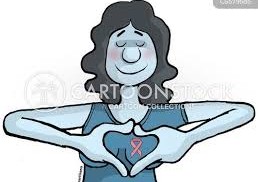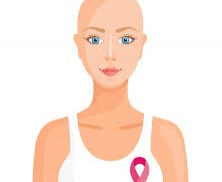Hope and Healing: A Simple Guide to Breast Cancer Treatment


What Is Breast Cancer and How Does It Begin?
Breast cancer is a disease where cells in the breast start growing out of control. These abnormal cells can form a lump or mass and sometimes spread to other parts of the body. But how does it start? It usually begins in the milk ducts or glands of the breast and grows slowly over time.
Key Points:
- Breast cancer happens when breast cells grow the wrong way
- It can form a lump you might feel or see
- It can spread to other parts of the body if not treated
- Early discovery is important for better results
- Most cases affect women, but men can get it too
Understanding how it starts helps people take action early. Not all lumps are cancer, but it's always good to check with a doctor when something feels or looks different in your body.
What Are the Signs of Breast Cancer?
Knowing the signs of breast cancer helps with early discovery and better chances of healing. Many people first notice a lump, but other signs can also appear.
Common Signs to Watch For:
- A lump or thick area in or near the breast
- Change in the size or shape of the breast
- Skin that feels different, like dimpled or red
- Nipple discharge, especially if it is bloody
- Pain in the breast or underarm that doesn’t go away
It is important to pay attention to any changes in your breasts. A monthly self-check and regular doctor visits can help find any issues early.
How Is Breast Cancer Diagnosed?
If someone finds a lump or shows signs of breast cancer, the next step is testing. Doctors use simple tools to find out if the problem is cancer or something else.
Steps in Diagnosis:
- Physical exam by a doctor
- Imaging tests like breast X-ray or sound scan
- A small sample of breast tissue may be taken for testing
- Lab work to understand the type and stage of cancer
These tests are safe and helpful. They guide doctors in choosing the best plan for each person. The sooner testing happens, the more options there are to treat it.
What Are the Main Treatment Options?
Breast cancer treatment depends on the type and stage. Doctors work with each person to choose the right care plan. Treatment can include one or more steps.
Most Common Treatments:
- Surgery to remove the lump or the whole breast
- Medicines to slow or stop cancer cell growth
- Light treatments (called radiation) to kill cancer cells
- Body-wide treatments to stop spreading
The goal is always to remove or destroy cancer cells and stop them from coming back. Some treatments may cause tiredness or changes in appearance, but they help save lives.
How Does Lifestyle Support Breast Cancer Recovery?
Healing from breast cancer is not only about medical treatment. A healthy lifestyle helps the body stay strong during and after treatment.
Ways to Support Recovery:
- Eating fresh fruits, vegetables, and lean proteins
- Staying active with gentle exercises like walking
- Sleeping well and managing stress with calming activities
- Staying in touch with friends and support groups
Taking care of your whole self — body and mind — gives you more strength and hope during treatment. Simple daily steps can bring comfort and energy.
How Can Femara (Letrozole) Help in Breast Cancer Treatment?
Femara, also known as Letrozole, is a medicine that helps treat certain types of breast cancer. It works by lowering the amount of a natural hormone in the body that some cancers need to grow. This is especially helpful for women who have finished menopause.
Why Femara Is Used:
- Slows the growth of hormone-related breast cancer
- Reduces the chance of cancer coming back
- Often used after surgery or other treatments
- Usually taken as a small daily pill
Doctors often suggest Femara when breast cancer is at an early stage or to prevent it from returning. It is taken over several months or years, depending on the person’s needs.
What Else Should You Know About Femara?
Femara is not a cure on its own but is part of a full treatment plan. It works best when used with regular checkups, healthy habits, and guidance from a doctor. People taking Femara often feel normal, but some may notice mild discomfort in joints or feel more tired than usual.
Helpful Tips While Using Femara:
- Take the pill at the same time every day
- Tell your doctor about any changes in how you feel
- Keep moving and eat well to feel stronger
- Ask for support from loved ones or support groups
Femara brings hope by helping to keep breast cancer from returning. It is one of many tools that help people move forward with strength and peace of mind.
Breast cancer can feel scary, but many people recover and live full, happy lives. The key is early discovery, getting the right care, and having support along the way. With the right treatment plan and daily healthy choices, healing becomes possible — and hope stays alive.
Article Post:Editorial Team of RXShop.md
(Updated at Jun 25 / 2025)

